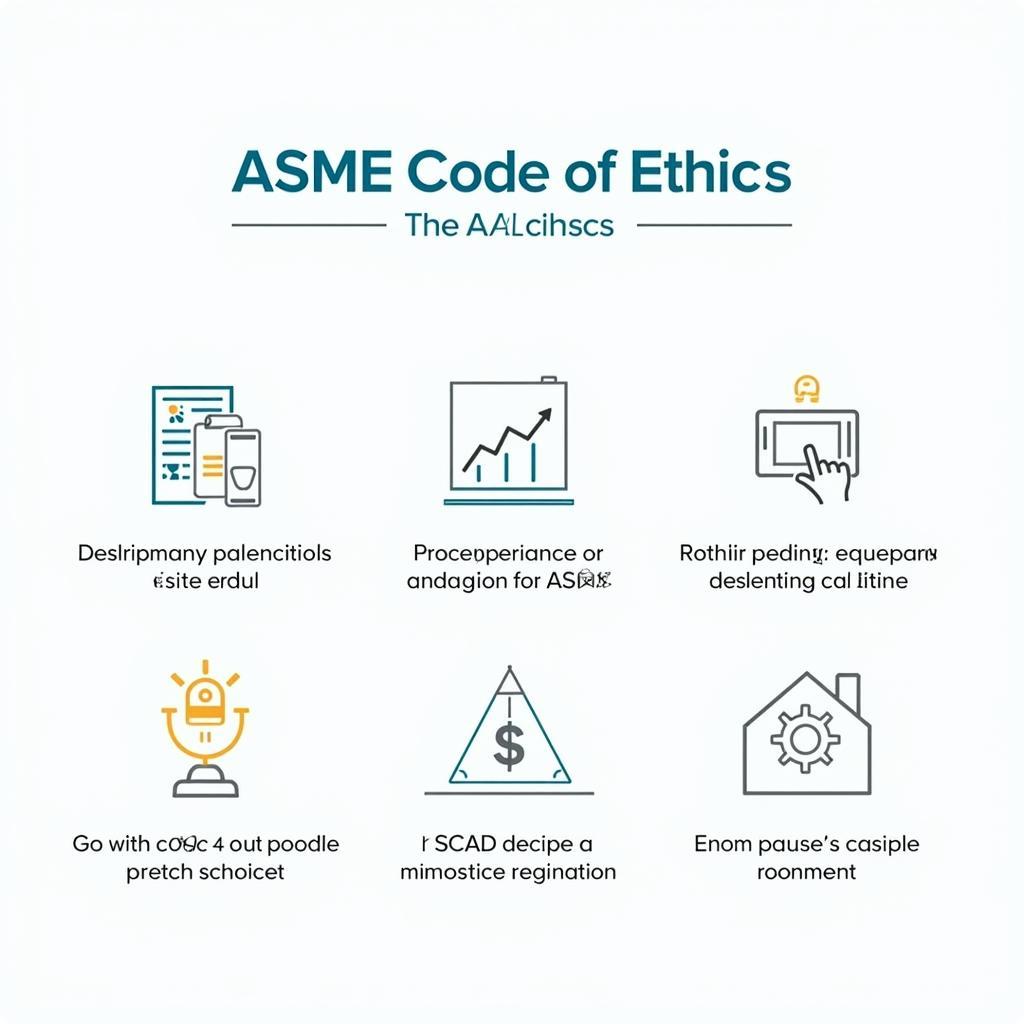The American Society of Mechanical Engineers (ASME) Code of Ethics provides a framework for ethical conduct for mechanical engineers. This code guides engineers in their professional practice, emphasizing responsibility, honesty, and public safety. It’s crucial for maintaining public trust and ensuring the integrity of the engineering profession.
The Importance of the ASME Code of Ethics
The ASME Code of Ethics isn’t just a set of rules; it’s a foundation upon which the entire profession of mechanical engineering is built. It establishes the fundamental principles that govern the behavior of engineers, reinforcing their commitment to upholding the highest standards of professionalism, integrity, and ethical conduct. This code ensures public safety, fosters trust in the engineering profession, and promotes responsible technological advancement. By adhering to this code, engineers contribute to the betterment of society and demonstrate their dedication to creating a world that benefits all.
Key Principles of the ASME Code of Ethics
The ASME Code of Ethics revolves around several core principles that guide ethical decision-making:
- Honesty and Integrity: Engineers are expected to be truthful in their dealings and maintain the highest level of integrity in their professional practice.
- Public Safety and Welfare: The safety and well-being of the public must be the paramount consideration in all engineering endeavors.
- Professional Competence: Engineers must only undertake work within their area of expertise and strive to maintain and enhance their competence throughout their careers.
- Confidentiality: Engineers are bound by a duty to protect confidential information entrusted to them by clients and employers.
- Conflict of Interest: Engineers should avoid situations where personal interests conflict with their professional obligations.
- Professional Development: Engineers should actively seek opportunities for professional growth and share their knowledge with others.
- Responsibility to the Profession: Engineers have a responsibility to uphold the dignity and honor of the engineering profession and promote ethical conduct among their peers.
 Key Principles of the ASME Code of Ethics
Key Principles of the ASME Code of Ethics
Applying the ASME Code of Ethics in Real-World Scenarios
The ASME Code of Ethics provides guidance for navigating complex ethical dilemmas that engineers may encounter in their professional lives. For example, an engineer working on a new product design must ensure that the design meets all safety standards and does not pose any risks to the public. If a potential safety issue is discovered, the engineer has an ethical obligation to report it, even if it means delaying the project or facing pressure from superiors.
How the Code Impacts Engineering Decisions
The ASME Code of Ethics is not just a theoretical document; it has practical implications for how engineers make decisions on a daily basis. It provides a framework for evaluating the ethical dimensions of engineering projects and ensuring that decisions are made with integrity and a focus on the public good.
The Future of the ASME Code of Ethics
As technology continues to evolve, the ASME Code of Ethics must adapt to address new ethical challenges. This includes issues related to artificial intelligence, automation, and sustainability. The ongoing discussion and refinement of the code are essential to ensure that it remains relevant and continues to provide guidance for engineers in a rapidly changing world.
Addressing Emerging Ethical Challenges in Engineering
The ASME continuously reviews and updates its code of ethics to reflect the evolving landscape of engineering. This ensures that the code remains a valuable resource for engineers navigating the ethical complexities of their profession in the face of new technologies and societal challenges.
 ASME Code of Ethics: Future Challenges
ASME Code of Ethics: Future Challenges
In conclusion, the American Society Of Mechanical Engineers Code Of Ethics is a cornerstone of the engineering profession, providing a framework for ethical conduct and ensuring public safety and welfare. By adhering to this code, engineers contribute to a more responsible and sustainable future.
FAQ
- What is the purpose of the ASME Code of Ethics?
- How does the code address conflicts of interest?
- What are the key principles of the ASME Code of Ethics?
- How does the code impact engineering decisions?
- What is the future of the ASME Code of Ethics?
- How can I report an ethical violation?
- Where can I find the full text of the ASME Code of Ethics?
If you need support, please contact Phone Number: 02043854663, Email: [email protected] Or visit us at: Khu 34, Bac Giang, 260000, Vietnam. We have a 24/7 customer service team.